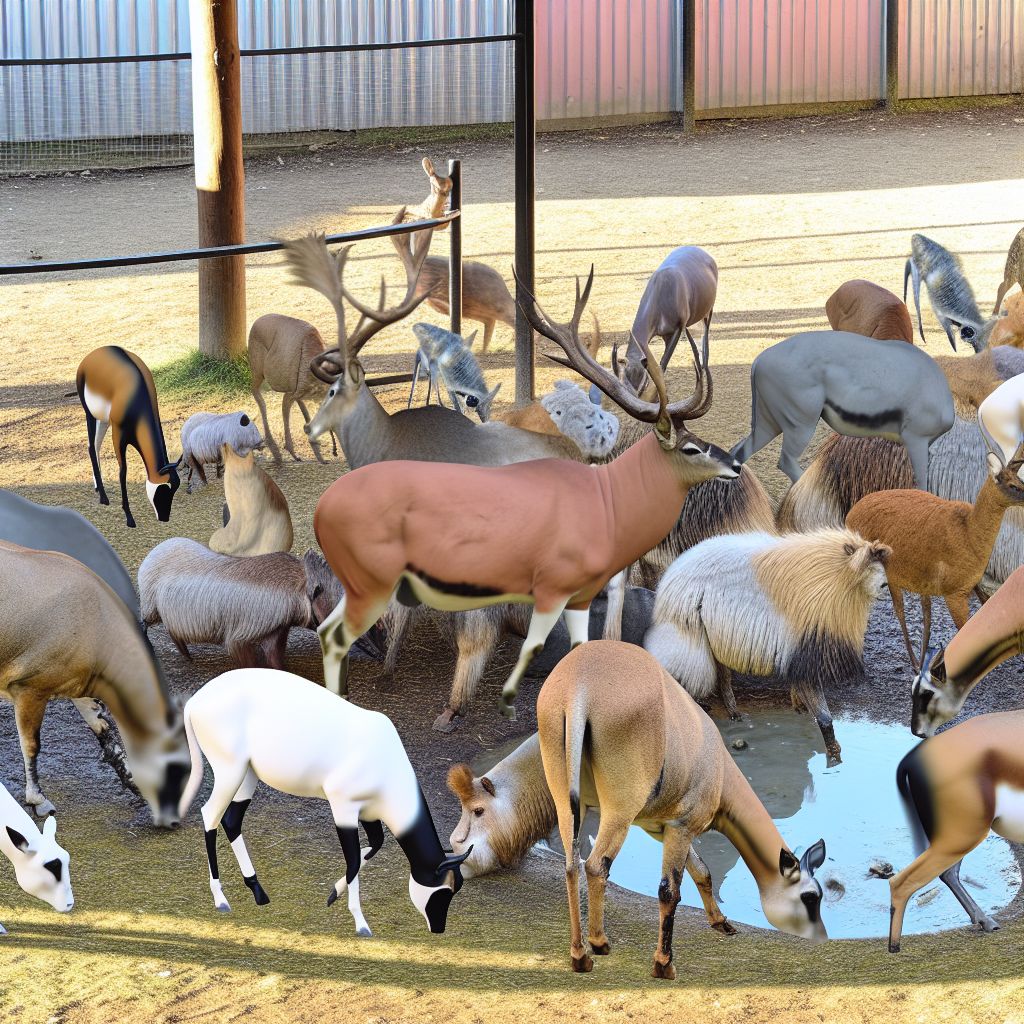Deutsch: Herbivore / Español: Herbívoro / Português: Herbívoro / Français: Herbivore / Italiano: Erbivoro
Herbivore in the environment context refers to an organism that primarily eats plants, including leaves, fruits, stems, and other plant materials. Herbivores play a crucial role in ecosystems by influencing the structure and composition of vegetation, contributing to the energy flow through food webs, and affecting the cycling of nutrients within their habitats.
Description

Herbivores range from small insects, such as caterpillars and aphids, to large mammals like elephants and giraffes. Their feeding activity can shape the environment in significant ways, for example, by controlling the dominance of certain plant species, aiding in seed dispersal, and facilitating pollination. The presence and Behavior of herbivores can thus have far-reaching effects on biodiversity, ecosystem stability, and the processes that maintain the health and function of natural habitats.
Application Areas
Understanding the role and impact of herbivores is important in various environmental science fields, including:
- Ecology: Studying how herbivores interact with plant communities and other organisms in the ecosystem, and how these interactions affect ecosystem dynamics and resilience.
- Conservation Biology: Assessing the impacts of herbivory on biodiversity and identifying strategies to conserve threatened herbivore species and their habitats.
- Agriculture: Managing herbivore populations to protect crops from damage while considering the ecological roles of these organisms.
- Climate Change Research: Exploring how changes in herbivore populations may affect carbon sequestration and other climate-related processes within ecosystems.
Well-Known Examples
Examples of herbivores and their environmental roles include:
- Grasshoppers and other insect herbivores: These small herbivores can have a significant impact on plant populations and the composition of ecosystems.
- Bison in North American prairies: Bison grazing has shaped the structure of prairies, influencing plant diversity and ecosystem function.
- Elephants in African savannas: As mega-herbivores, elephants play a key role in modifying vegetation structure, creating habitats for other species through their foraging behavior.
Treatment and Risks
The relationship between herbivores and their environment can be affected by various factors, including habitat loss, climate change, and human activities such as agriculture and urban development. These factors can lead to changes in herbivore populations, with potential consequences for ecosystem health and biodiversity. Conservation efforts are aimed at preserving herbivore populations and their habitats, ensuring that their ecological roles are maintained. However, there is also a need to manage herbivore populations in some contexts, such as in agriculture, where excessive herbivory can lead to crop damage and economic losses.
Similar Terms or Synonyms
Similar terms include plant-eaters, phytophagous animals, and folivores (a subset of herbivores that specifically eat leaves).
Summary
In the environmental context, a herbivore is an organism that eats plants and plays a vital role in ecosystems by participating in the transfer of energy from plants to other members of the Food web, influencing plant community dynamics, and contributing to nutrient cycling. The study of herbivores and their interactions with the environment is essential for understanding ecosystem processes, conserving biodiversity, and managing landscapes for sustainability.
--
Related Articles to the term 'Herbivore' | |
| 'Food chain' | ■■■■■■■■■ |
| Food chain is a series of organisms each dependent on the next as a source of food. It represents the . . . Read More | |
| 'Carnivore' | ■■■■■■■■■ |
| Carnivore in the environment context refers to an organism that primarily consumes meat, deriving its . . . Read More | |
| 'Prey' | ■■■■■■■■■ |
| Prey refers to animals that are hunted, captured, and eaten by predators in the food web. In the environmental . . . Read More | |
| 'Biomass' | ■■■■■■■■ |
| A Biomass is all of the living material in a given area often refers to vegetation. (1) the amount of . . . Read More | |
| 'Environmental Monitoring' at maritime-glossary.com | ■■■■■■■■ |
| Environmental Monitoring in the maritime context refers to the systematic observation, measurement, and . . . Read More | |
| 'Fishing' | ■■■■■■■ |
| Fishing is the activity of trying to catch fish. Fishing usually takes place in the wild. Techniques . . . Read More | |
| 'Insecticide' at top500.de | ■■■■■■■ |
| Insecticide in the industrial context refers to a chemical or biological agent that is used to deter, . . . Read More | |
| 'Creek' | ■■■■■■■ |
| Creek: A creek is a watercourse smaller than, and often tributary to, a river. . . . . . . Read More | |
| 'Land' | ■■■■■■■ |
| Land, sometimes referred to as dry land, is the solid surface of the Earth, that is not covered by water. . . . Read More | |
| 'Flower' | ■■■■■■■ |
| In the environment context, a \'flower\' refers to the reproductive structure found in flowering plants . . . Read More | |
